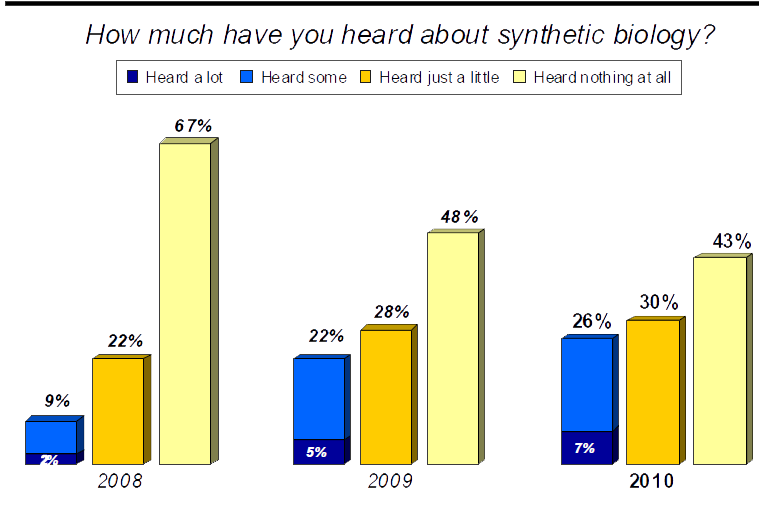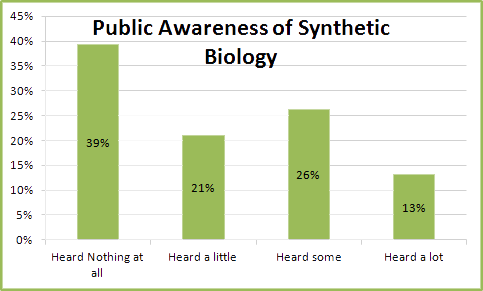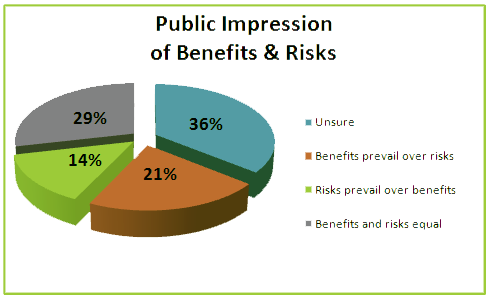Team:UCL London/Ethics
From 2010.igem.org
Synthetic Biology - 21st Century answer to our problems?
Synthetic Biology has undoubtedly opened the doorway to revolution in the scientific and engineering world! We have witnessed first hand the effect and power that can be attained behind such technology, but what about the public?
Surveys over the past few years have shown that the public awareness towards Synthetic Biology is gradually increasing, be it slowly, but nevertheless. Below is a graph from the findings of the Awareness & Impressions Of Synthetic Biology report released September 2010, and shows that slight increase in Synthetic Biology, even though the increase under each section is only in the region of around 6% since 2008.
In response to this, we interviewed and asked people whether or not they had heard about Synthetic biology in all our Public Engagement events and compiled the results in the following bar chart;
This does indeed complement the reports that public awareness of Synthetic Biology is on the rise. Here you can see that the percentage of people who have never heard of Synthetic Biology is down considerably, and more people have now been made aware of it, not necessarily indicating that they understand its purpose, but nevertheless good signs. And with initiatives like iGEM expanding globally amongst universities and institutes, we expect this trend to continue for next few years. This analysis was really simple and we wanted to go that one step further and find out what people's views of synthetic biology were and what they wanted to come of this emerging discipline. the following chart is that of people's opinions how they would balance the positives and negatives of Synthetic biology;
It was really interesting speaking and interviewing individuals because a wide range of issues and opinions were raised, from being able to implement synthetic biology techniques into the growth of livestock, to Is there a rogue element to this?.
Intellectual Property rights
Synthetic Biology is still emerging and one real issue which has been raised consistently time after time are IP rights. Solid foundations around Intellectual Property in Synthetic Biology has yet to be established and we followed this up by interviewing Lawford Davies Denoon for information on such legal issues, especially given their 25 years of experience in the legal side of life sciences which will help us understand the complexity of IP rights in the life sciences sector.
We've learnt that in order to protect our new product, some vital steps must be taken into consideration for this to become feasible. Firstly, we may have to file several patents to cover original cell line, concept, process improvements etc. It is essential that your protect yourself in terms of abiding by Trade Secrets and keeping information confidential otherwise if leaked or disclosed than the jeopardy of all your effort may be put on the line. Eventually once established, we can implement trademarks to protect our "company" as a gold standard from others in competition with us.
Bio-security is an issue which arises due to the lack of solid IP rights in Synthetic Biology, and so this openness whereby information is advertised to the world essentially does raise security issues and co "
"





